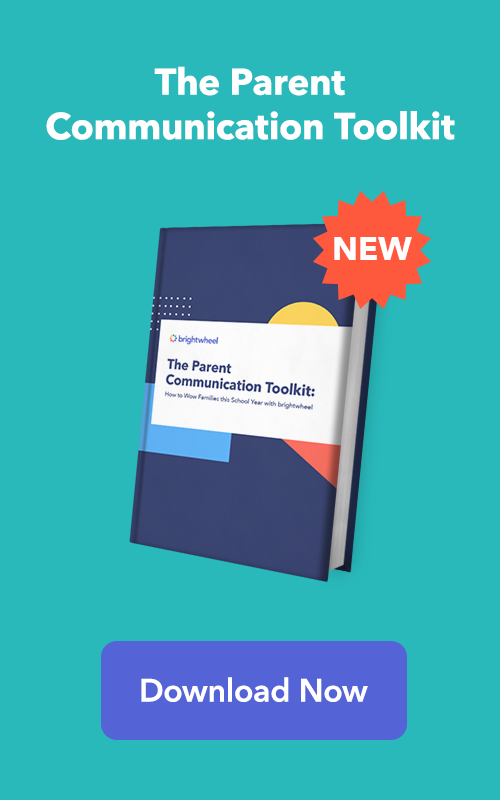
What's early education?
In the U.S., we tend to think about education as starting when kids enter kindergarten. For the most part, it’s the entry into our public school system and, for many kids, it’s the start of their first full-day program. Our systems, our attention, even our funding is very much focused on kindergarten through high school (K-12).
The truth is that education begins at birth. Studies consistently show that the development that happens in the earliest years of life (zero to five) are absolutely critical to a child’s future. Parents and families certainly play a big role here. So too do the childcare specialists and educators at daycares, preschools, afterschool programs and the like.
Why early education matters.
The focus on K-12 would suggest that young pupils show up to kindergarten ready to go. I think most educators and parents know that just isn’t the case.
A child’s early years are astonishingly important. Consider this fact alone: 85% of brain development happens in the first three years of life. Furthermore, pre-k childcare and education provide important building blocks, including physical, social, and emotional development - along with language and learning behaviors such as literacy and math skills.
The benefits of early education don’t stop with academics. Access to preschool is connected to lower rates of delinquency, crime, substance abuse, and teenage pregnancy - along with higher rates of employment and educational attainment. Studies show a return of $17 for every dollar invested in early care and education. Read that again. That’s incredible.
And childcare is a must for working families. Not having access to daycare, preschool, or other forms of childcare simply limits a parent’s ability to seek employment.
But it’s broken.
There are severe issues in terms of supply, quality, and support. First, we have to ensure that families have access to childcare and preschool; there are millions of families in the U.S. who simply have no pre-k options that are both available and affordable. And then we have to ensure those options are high quality, nurturing environments where our kids can thrive. And lastly, we have to support our early educators in the important work that they do.
The reality is that we are not doing this today. According to the U.S. Department of Education, “fewer than three in ten 4-year-olds are enrolled in a high-quality preschool program.” Recent studies show that 35 to 45 % of American kids are not “school ready” when they enter kindergarten. This has an outsized impact on lower income children. A recent Brookings Institution study found that 48% of poor children are not ready for school by age 5.
It doesn’t have to be this way. The current realities of the U.S. system are in sharp contrast to many other countries, such as Japan and the United Kingdom, who enroll nearly all children in preschool programs. The U.S. ranks 26th in the world in access to early learning for 4-year-olds. The U.S. also lags behind in both teacher-to-student ratio and per-student spending.
And what about our educators? Recent research points out that childcare workers earn 40% less than the national median wage - while having significantly higher rates of poverty and lower rates of health insurance; they often can’t afford the same type of education they are providing. This is wrong. Simply scroll up to reread the tremendous impact these individuals have in the lives of our kids - both immediate and long-term - and how important they are in supporting working families. And it’s not just about wage. It’s about providing adequate support, training, and tools. The hours are long and the pay is low, and yet the impact is so great.
What’s being done?
We are thankful to see that early education is getting more attention at both the federal and state levels. Nationally, the importance of early learning and childcare has been championed by the Obama administration. In the President’s 2013 state of the union address, he called on Congress to increase spending to support high-quality preschool programs. Support has grown since then, culminating in a December 2014 announcement that $1 billion will be invested in the early learning space over the coming years.
Individual states are also turning their attention to early education. 40 states have zero-to-five based programs that provide state dollars for early childhood services, and 30 of them have recently increased funding. Oklahoma instituted one of the first universal pre-k programs in the country, and the results are already showing. The state requires small class sizes, and preschool teachers are highly qualified and paid the same salary as K-12 educators.
These are positive steps in the right direction. But there’s more to be done. In addition to access, there are many questions around quality and how to ensure that our children are getting a creative, personalized, and fulfilling start to their education.
Early education needs to be a priority at every level of government. Every family should have access to high quality pre-k programs. And businesses need to support early education, too, through family-friendly policies or direct investment in access and innovation.
What we’re doing.
We here at brightwheel believe passionately in the importance of early education, and have come together to do something about it. We conducted extensive research and worked closely with our pilot schools to develop a series of tools to help solve some of the biggest challenges in this space. Now that we’ve launched brightwheel publicly (and for free), we are hearing from schools and families across the country that brightwheel is already having an impact.
For educators, the brightwheel platform streamlines administrative and educational activities - everything from communication to assessment to photo sharing or even billing - into one simple app. We hear everyday how this is saving valuable time throughout the day and week. This time adds up, and ultimately means more time with students. For parents, the brightwheel mobile app provides a real-time window into their child’s day - helping parents engage more deeply with their child’s learning during the day and build on that learning at home; we know that parents - along with teachers - are such a critical part of the equation. We are so excited and proud of these early success stories.
But this is just the beginning. We have lofty goals to continue improving the lives of administrators, teachers, parents, and young students. We are working to bring innovation to an industry that serves our most important resource and what should be our greatest national investment: our children.
Dave Vasen
Founder & CEO, brightwheel
